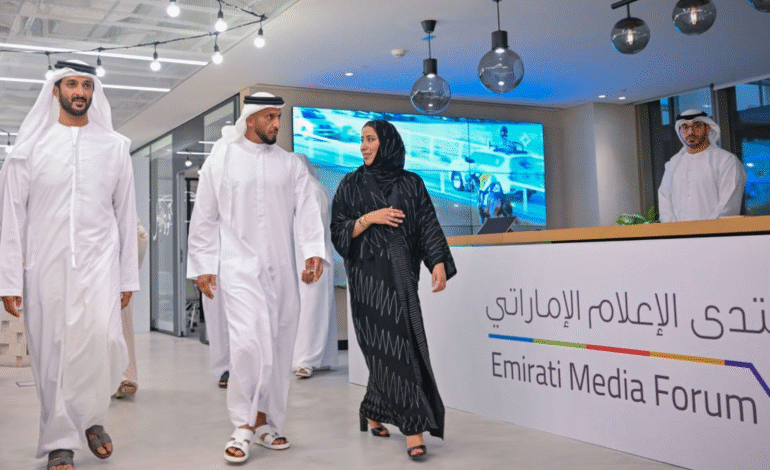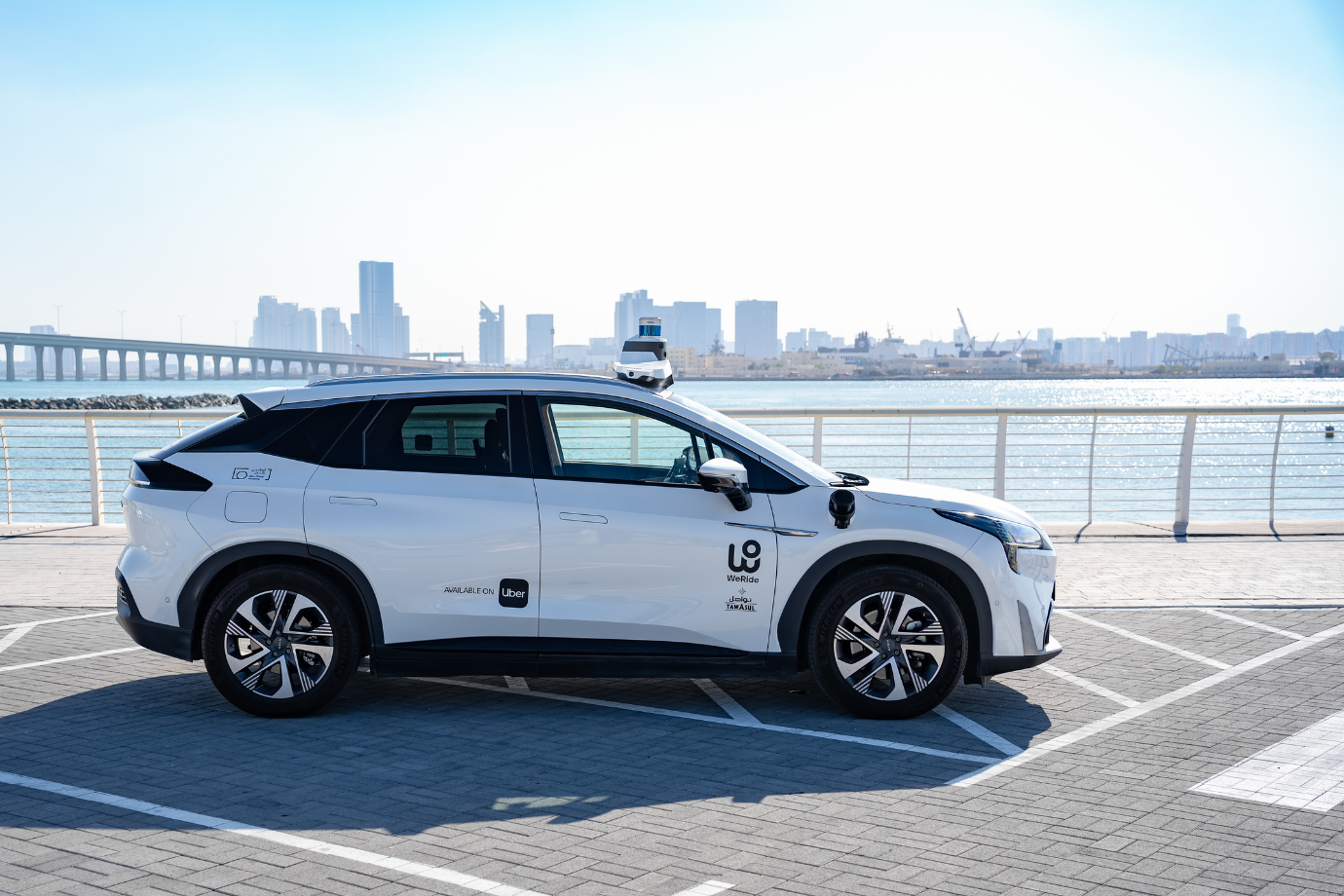Sheikh Hasher Bin Maktoum on the Rise of Emirati Media

The media industry in the UAE has witnessed a remarkable transformation over the past few decades, evolving from a humble setup into a regional powerhouse of journalism, broadcasting, and digital innovation. Key figures like His Highness Sheikh Hasher bin Maktoum bin Juma Al Maktoum, Chairman of Dubai Media Incorporated, have been pivotal in this growth. During the Arab Media Forum, Sheikh Hasher shared invaluable insights into the challenges and milestones that shaped the Emirati media landscape. Alongside him, veteran Emirati director Matrook Nasser discussed the creative journey of local filmmakers, highlighting the dedication and passion required to thrive in this competitive field.
This article delves into their stories, the development of Dubai’s media sector, and the vital role of innovation and specialization in sustaining future growth.
The Humble Beginnings of Emirati Media
In a candid session titled “A Conversation with Pioneers of Media and Inspiration,” Sheikh Hasher bin Maktoum reminisced about the early days when Dubai’s media industry was barely in its infancy. “Before the union of the UAE, there was only one newspaper in Dubai called Dubai News, issued weekly by the municipality,” he recalled. At that time, the entire media division consisted of just two employees — himself and one colleague.
These modest origins, while seemingly insignificant then, laid the essential foundation for a media revolution that would come to define Dubai’s stature in the region. Sheikh Hasher emphasized how this initial phase was critical in establishing a foothold, setting standards for journalistic integrity, and igniting interest in local and national media coverage.
The Role of Visionary Leadership
Sheikh Hasher attributed much of the progress in Dubai’s media sector to the foresight and commitment of the late Sheikh Rashid bin Saeed Al Maktoum. Recognizing media’s powerful influence, Sheikh Rashid invested heavily in developing Dubai’s broadcasting and print capabilities. This vision saw Dubai News transition from a weekly to a daily publication, introducing innovations such as color printing that were ahead of their time in the emirate.
During this era, Sheikh Hasher himself took on a dual role—supervising television broadcasts during the day and working alongside the editorial team of Al Bayan newspaper in the evenings. He described their mornings as filled with editorial meetings analyzing competitor newspapers like Al Khaleej and Al Ittihad, followed by night sessions focused on crafting the next day’s news. This rigorous routine reflected the passion and dedication that helped elevate the media from a basic municipal service to a sophisticated, multi-platform institution.
Navigating Modern Challenges in Media
Despite tremendous advancements, Sheikh Hasher expressed concern over the global decline of traditional media forms, such as newspapers and television. With the rise of digital platforms and social media, many established media institutions struggle to keep pace with technological changes. This disruption demands urgent modernization and innovation from print and broadcast media alike to stay relevant and competitive.
He stressed the importance of embracing digital transformation while maintaining journalistic standards and credibility. The evolving media landscape presents both challenges and opportunities, with platforms offering new ways to engage audiences and distribute content worldwide. For Dubai and the UAE, maintaining leadership in this dynamic sector means continuously adapting to technological advancements and shifting consumer preferences.
The Importance of Specialization and Quality Journalism
One of the key points Sheikh Hasher emphasized was the critical need for specialization within the media workforce. He highlighted that journalists and broadcasters must focus on specific fields—whether politics, economics, or sports—to deepen the credibility and quality of their reporting. He pointed out that one persistent issue in TV and news media is the mismatch between journalists’ expertise and the topics they cover, which can undermine the depth and accuracy of coverage.
Encouraging young media professionals to build expertise through reading, research, and original content creation, Sheikh Hasher urged them to go beyond simply reposting or copying material from other sources. This dedication to craftsmanship ensures that the media not only informs but also educates and engages its audience meaningfully.
Empowering Youth and Community-Centric Media
The Chairman of Dubai Media Incorporated also called for more youth-led media initiatives that foster community engagement and elevate public discourse. He envisioned media in the UAE as a force that goes beyond commercial success, striving to contribute cultural and societal value. Such an approach aligns with the broader UAE vision of sustainable development, social cohesion, and promoting tolerance through responsible media.
Sheikh Hasher’s vision encourages the next generation of media professionals to use their platforms thoughtfully and creatively, enriching national identity and contributing positively to societal growth.
Insights from Emirati Filmmaker Matrook Nasser
Complementing Sheikh Hasher’s reflections, Emirati filmmaker Matrook Nasser shared his personal journey in the creative arts during a session called “Dubai Film Pioneers with Matrook Nasser.” Founder of a Dubai-based production company, Nasser traced his passion for filmmaking back to his school days when a teacher first noticed his talent.
He pursued formal education in cinema and television in the UK, followed by training with international media firms. Nasser’s philosophy, “passion over titles,” underscores his belief that mastery of every aspect of filmmaking—from directing to editing—is essential for success
Building a Career in Dubai’s Media Industry
Nasser recounted his early years working with international producers and the challenges of establishing a private production company in Dubai. He credited his relentless work ethic and willingness to learn every facet of production for his achievements. “It was never just about becoming a director—it was about mastering every aspect of the craft,” he said.
He also cautioned aspiring filmmakers against rushing to claim directorial titles prematurely. A comprehensive understanding of filming, lighting, and editing is crucial before taking the helm of a production. Nasser’s perspective emphasizes that the industry values depth of knowledge and experience over mere credentials.
Embracing Technology and AI in Filmmaking
While acknowledging traditional skills remain vital, Nasser highlighted the growing role of artificial intelligence (AI) in filmmaking. AI tools can enhance creativity by offering innovative camera angles, optimizing lighting conditions, and accelerating editing workflows. This fusion of technology and art promises to redefine storytelling techniques and production efficiency.
He encouraged young Emiratis to embrace these technological advancements, integrating them with foundational filmmaking skills to tell authentic stories that resonate with Dubai’s spirit and heritage.
A Vibrant Future for Emirati Media
The discussions at the Arab Media Forum reveal a media landscape rooted in perseverance, innovation, and a vision for continuous growth. From Sheikh Hasher bin Maktoum’s early days managing a two-person press office to today’s sophisticated multimedia environment, Dubai’s media sector has come a long way.
The combined insights of Sheikh Hasher and Matrook Nasser underscore the importance of passion, specialization, technological adaptation, and cultural responsibility in shaping a dynamic media future. As the UAE continues to invest in media infrastructure and talent development, it stands poised to maintain its status as a leading hub for regional and global media excellence.







